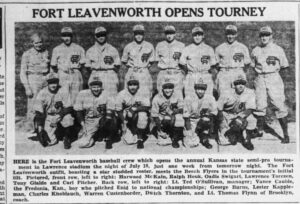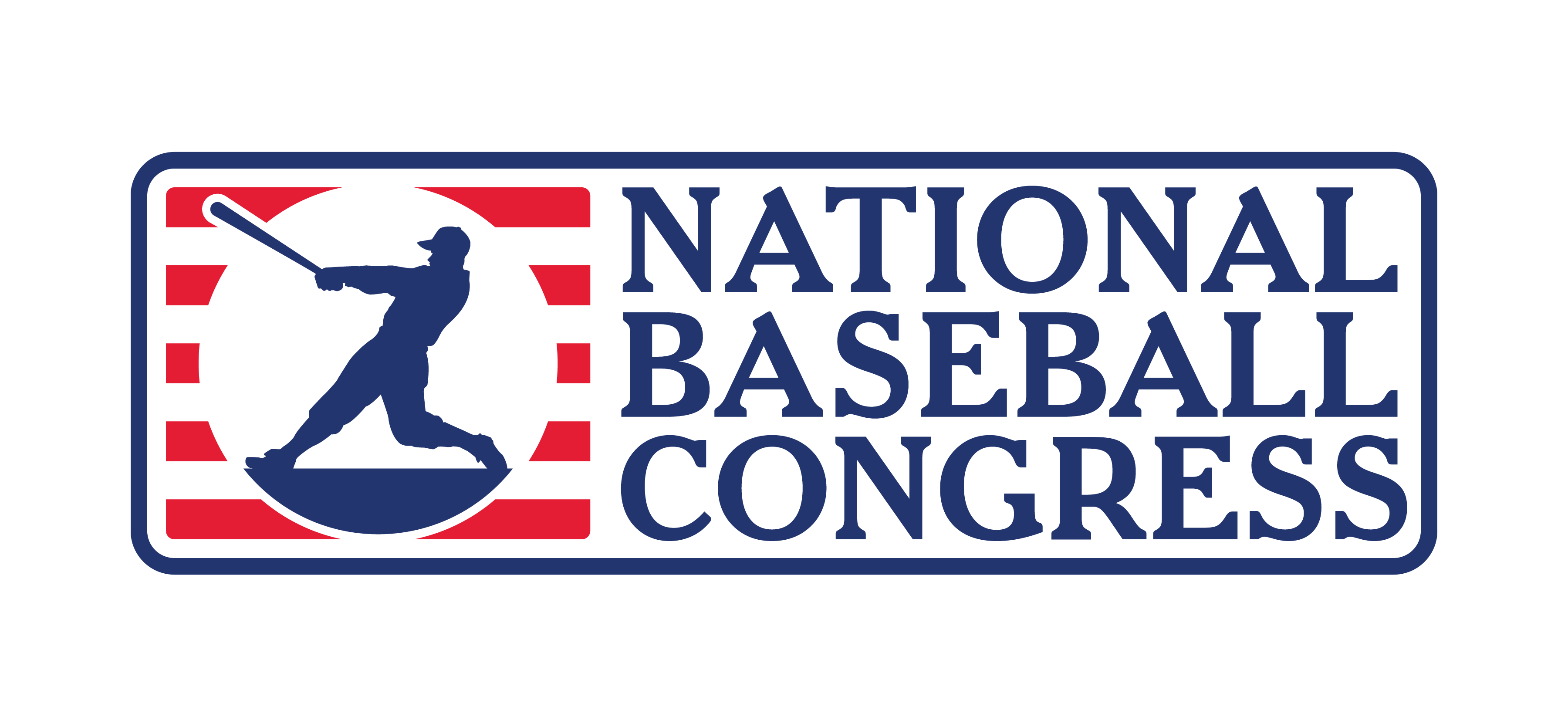NBC Hall of Famer Ralph Houk
Ralph Houk
August 9, 1919-July 21, 2010
Fort Leavenworth (KS) Reception Centers 1942
A highly decorated war hero and successful MLB manager, Ralph Houk was born in Lawrence, Kansas in 1919. He started playing baseball around 11 years old as an outfielder, but quickly discovered he was best suited as a catcher. While developing his skills behind the plate, Houk also excelled in football and basketball and received offers to play at the University of Oklahoma and the University of Kansas, respectively, upon graduation from high school. However, he continued to pursue baseball and was an All-Star playing in the Ban Johnson league when a scout from the New York Yankees saw him and signed him to a minor league contract for $500 in 1938. He spent a few years at various lower-level minor leagues, but after the U.S. entered World War II, he enlisted in the Army with his brother in February 1942. 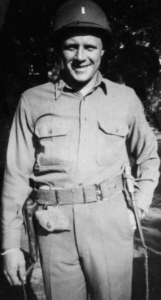
Sent to Fort Leavenworth, Kansas, he was a part of an infantry baseball team known as the Reception Centers, which assembled their team in a week and went 16-1 before arriving in Wichita for the NBC state semipro tournament. Houk hit .286 in 6 games as the Reception Centers lost in the quarterfinals, which wasn’t enough to assure them a spot in the National. Other teams, including the eventual NBC World Series champion Boeing Bombers, pursued him for his services, but when the final list of teams was announced, Fort Leavenworth had received a berth. Houk threw out two potential base stealers in their opening game win, but hit just .214 in 4 games, and his team finished 2-2 and 9th in the tournament.
He would not return to Wichita again, but would appear once more in an NBC state tournament, in Louisiana, in 1944. Playing for Camp Polk, he was not only his team’s catcher, but also their manager. The Lieutenant led the team to not just the state title, but was named the MVP of the tournament as well. The runners-up would replace them as the Louisiana representative in the National, though, as his outfit was sent to Europe days later. Houk and his unit landed on Omaha Beach just a few months after D-Day, and working their way inland, they saw their first action at the Battle of the Bulge. 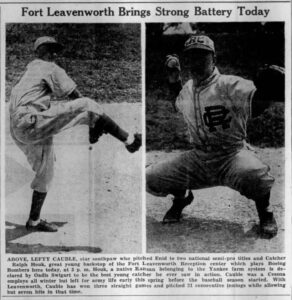
During that battle, he was shot in the calf as well as in his helmet, which likely stopped a bullet from killing him. He received a Silver Star for his actions, with the inscription reading –
“Deliberately exposing himself to the withering fire, although the fire was so intense that his clothes were torn by enemy fire, he calmly moved from one position to another, directing his men. As enemy tanks continued to advance, realizing that his guns were ineffective against them, he secured a tank destroyer from an adjacent unit, and, personally directing its fire, he forced the enemy to withdraw from the area. Through his gallant leadership, he was directly responsible for repelling the enemy attack.”
In addition to the Silver Star, he was also awarded a Bronze Star with oak leaf clusters and a Purple Heart, and ultimately achieved the rank of Major. He downplayed his leadership and heroism, saying, “In my outfit, all you had to do to get promoted was stay alive.”
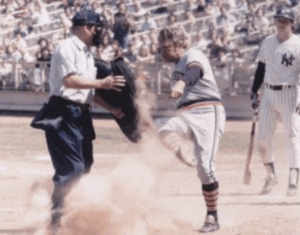
When the War ended, Houk returned to the minor leagues and made his major league debut in 1947. Primarily a backup to Yogi Berra, Houk played in just 91 games over parts of 7 seasons before moving into a coaching role. Prior to Game 7 of the 1960 World Series, legendary manager Casey Stengel told Houk, the Yankees’ first base coach at the time, that he would not be managing in ‘61 and hoped that he would be his successor. The Yankees indeed promoted Houk, and the rookie manager became just the second ever to win League Pennants in his first three seasons at the helm and the only one to win the World Series in each of his first two seasons. Those would be the only times he led a team to the postseason in his 20 seasons of managing the Yankees, Detroit Tigers, and Boston Red Sox. He retired from managing after the 1984 season with a career record of 1619-1531 (.514). After a few years as Vice President of the Minnesota Twins, he stepped away from baseball for good in 1989 and spent his later years in Winter Haven, Florida. Houk passed away at 90 years old in 2010.
